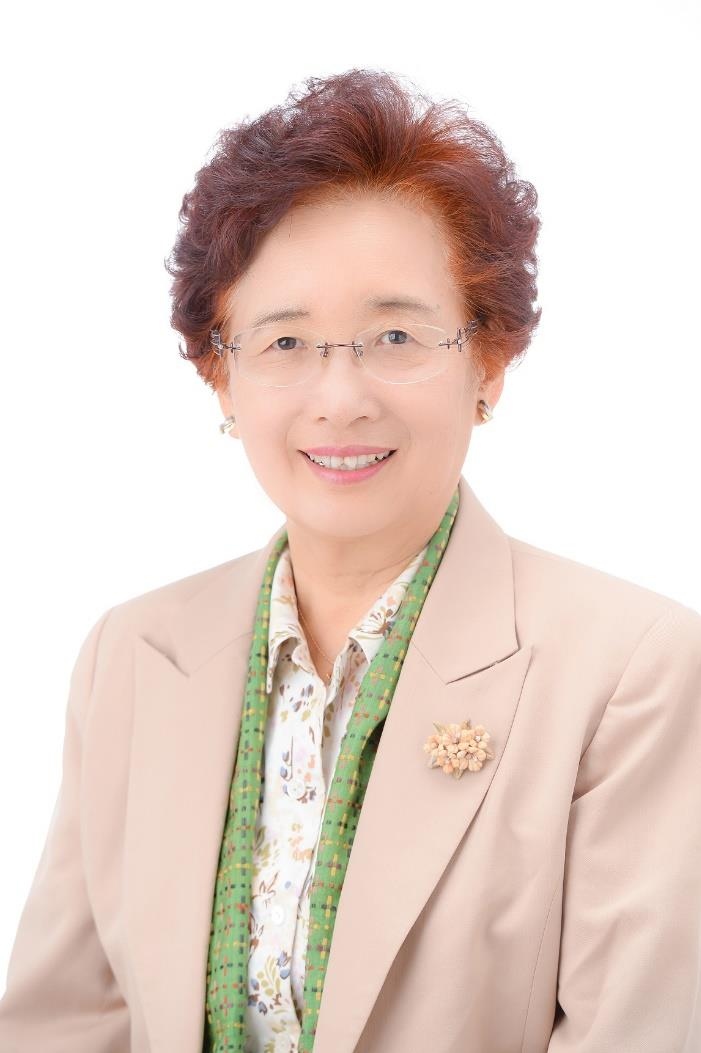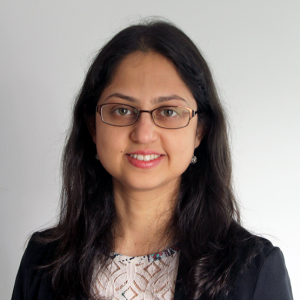2021 Awardees
John Goldsmith Award
Reiko Kishi, MD, PhD, MPH
Center for Environmental and Health Sciences, Sapporo, Japan

Born in 1947, Prof. Reiko Kishi was a medical student when she first learned about the victims of the Minamata mercury poisoning. Thereafter she began to study toxicology and obtained her PhD from Hokkaido University (1977). In 1990, she received an MPH degree from the School of Public Health, Harvard University. In 1997, she was the first woman to become a full professor of the Department of Public Health Sciences at Hokkaido University. She is currently a Distinguished Professor of Hokkaido University, Center for Environmental and Health Sciences.
She has also used environmental epidemiology to influence public policy. From 2005, as a member of the Science Council of Japan she organized several committees that issued more than ten recommendations to the government and academia. In 2011, after the great East Japan earthquake and the Fukushima nuclear accident, she used environmental epidemiology to effect public policy. As the Chair of the Food Hygiene Council of the Japan Committee of the Ministry of Health, Labor and Welfare, she worked to codify the safety limits for the level of radiation-contaminated foods in Japan. This contributed to decrease the risk of thyroid cancer in Fukushima.
She was a trailblazer in the elucidation of various health impacts of developmental exposure to low-level environmental chemicals in birth cohort studies. The Hokkaido Study of Environment and Children‘s Health (N=514 and 20,926) was launched in 2002. The most remarkable feature of this study is that it is a study of the effects of general background levels of chemicals in the environment. Her group discovered that chemicals such as PFASs have effects on birth weight, and immune function. In addition, they found strong evidence of endocrine disruptions caused in utero in humans. An increase in maternal dioxin, PFASs and MEHP was found to be related to some sex hormone levels in cord blood. Her work emphasizes the life course approach, focusing on the early life period as it sets the stage for lifelong health. In the last 20 years, her group has published more than 150 original research papers from the cohort. Their biomolecular studies revealed that even with a similar level of exposure to chemicals, genetic polymorphisms such as those in aryl hydrocarbon receptors, and drug-metabolizing enzymes were associated with large differences in fetal effects.
In 2011, she was a cofounder of the Birth Cohort Consortium of Asia (BiCCA). Since 2015, her center has been a WHO Collaborating Centre for Environmental Health and Prevention of Chemical Hazards and she has been its director. She has been a member of the ISEE Asia and Western Pacific Chapter Executive Council since 2014 and was the president of the 4th ISEE & ISES (joint) Asian Chapter Meeting. (2016)
As she noted in two of her recently published books, Health Impacts of Developmental Exposure to Environmental Chemicals, and Indoor Environmental Quality and Health Risk Toward Healthier Environment for All, Springer Nature, 2020, the accumulation of scientific knowledge and reinforcement of political actions based on scientific evidence are exceedingly important and of key significance for SDGs.
Tony McMichael Award
Jaime Hart, ScD
Brigham & Women's Hospital & Harvard Medical School, United States

Dr. Hart is dedicated to supporting the scientific dissemination and translation of
environmental epidemiology research. This is reflected in her numerous activities as an editor, editorial board member, and ad hoc peer reviewer for scientific journals. Furthermore, she has served as an external reviewer for many important documents summarizing the literature for regulatory purposes, e.g. the US EPA‘s Particulate Matter (PM) Integrated Science Assessment (ISA). She has also participated as a speaker and discussant for community meetings explaining the science on the health effects of air pollution, e.g. her talks at Vanderbilt Law School and School of Medicine, Nashville, TN and the West Virginia Public Health Association, Shepherdstown, WV.
Dr. Hart has been an active member of ISEE, attending her first meeting in 2014 when she was a student. In addition to regularly reviewing abstracts and judging posters for the annual meeting, she has served on the following committees: The Conference Scientific Program Committee 2012-15; Chair, ad hoc website committee 2009-11; Ad hoc secretariat selection committee 2014-15; Communications committee 2017 to the present. She was also nominated for Secretary Treasurer in 2018.
Rebecca James Baker Award
Gauri Desai, PhD
University of Buffalo, United States

Dr. Gauri Desai is a Clinical Assistant Professor in Epidemiology and Environmental Health, in the Undergraduate Public Health Program at the University at Buffalo, The State University of New York. Her educational background includes a Bachelor‘s degree in Microbiology and a Post-Graduate Diploma in Healthcare Management from the University of Pune in India, a Master‘s degree in Public Health from Indiana University Bloomington, and a Ph.D. in Epidemiology from the University at Buffalo.
Her research interests are primarily in the area of environmental epidemiology, focusing on understanding the impact of environmental toxins on children‘s growth and development. She is also interested in understanding the role of diet in mitigating the toxicity of environmental exposures. Her recent research work on low-level arsenic exposure, B-vitamins, and neurodevelopment among Uruguayan schoolchildren showed that although low-level arsenic exposure was not associated with general cognition or academic achievement, it exerted neurotoxic effects on children‘s executive functions. Additionally, intake of B-vitamins modestly lowered the toxicity of arsenic when exposure occurred at low levels.
In addition, Dr. Desai has worked on several research projects, such as assessing associations between dietary intakes and blood lead levels among young children, those between onion and garlic intake and breast cancer among Puerto Rican women, and developing a research framework in sanitation for people with disabilities in low- and middle-income countries.
Research Integrity Award
Colin Soskolne, PhD
University of Alberta, Canada

Born and raised in Johannesburg, South Africa, during the height of Apartheid, Colin Soskolne‘s first-hand exposure to social injustice had a lasting impact on his life course. After obtaining his BSc (1970) and BSc Honours (1971) degrees from the University of the Witwatersrand, Johannesburg, he worked successively for the South African Human Sciences Research Council and then the Medical Research Council.
Thanks to research and teaching fellowships, he went on to obtain his PhD (Epidemiology) from the University of Pennsylvania in 1982. His award-winning doctoral dissertation led, in 1991, to the IARC designation of occupational exposures to strong-inorganic-acid mists containing sulfuric acid as a definitive human carcinogen. While extending his doctoral work post-PhD at Ontario Cancer Care and the University of Toronto (1982–1985), his academic career included HIV/AIDS research and education. Subsequently, relocating to the University of Alberta in 1985, his interests expanded to include environmental health more broadly, and then global change, with ethics and philosophy paralleling each line of enquiry.
He pioneered the development of ethics guidelines for the profession, published in 1996 and adopted by ISEE in 1999. Having witnessed injustice as a youth, and with the corrosive influence of powerful interests in science and public policy along the way, he recognized the even greater need for an ethical world—overcoming, with the support of key colleagues, much opposition in moving his ethics-promoting initiatives forward.
After 28 years at the University of Alberta, he retired as Professor emeritus in 2013. He continued with eight years of voluntary service, pursuing, in leadership roles, the International Network for Epidemiology in Policy‘s mission of Integrity, Ethics, and Evidence in Policies Impacting Health. His career contributions in research, teaching, and service are accessible at www.colinsoskolne.com.
Click here to watch his 2021 Research Integrity Award Acceptance Speech
Best Environmental Epidemiology Paper (BEEP) Award
Mercury exposure and premature mortality in the Grassy Narrows First Nation community: a retrospective longitudinal study
Aline Philibert, Myriam Fillion, Donna Mergler
The Lancet Planetary Health, Vol. 4, Issue 4, April 1, 2020
Best Environmental Epidemiology Paper (BEEP) Award - Honorable Mentions
Socioeconomic level and associations between heat exposure and all-cause and cause-specific hospitalization in 1,814 Brazilian cities: A nationwide case-crossover study
Rongbin Xu, Qi Zhao, Micheline S. Z. S. Coelho, Paulo H. N. Saldiva, Michael J. Abramson, Shanshan Li , Yuming Guo
Changing the urban design of cities for health: The superblock model
Natalie Mueller, David Rojas-Rueda, Haneen Khreis, Marta Cirach, David Andres, Joan Ballester, Xavier Bartoll, Carolyn Daher, Anna Deluca, Cynthia Echave, Carles Mila, Sandara Marquez, Joan Palou, Katherine Perez, Cathryn Tonne, Mark Stevenson, Salvador Rueda, Mark Nieuwenhuijsen
Improved asthma outcomes observed in the vicinity of coal power plant retirement, retrofit and conversion to natural gas
Joan Casey, Jason G. Su, Lucas R. F. Henneman, Corwin Zigler, Andreas M. Neophytou, Ralph Catalano, Rahul Gondalia, Yu-Ting Chen, Leanne Kaye, Sarah S. Moyer, Veronica Combs, Grace Simrall, Ted Smith, James Sublett & Meredith A. Barrett
Nature Energy
Within-city Spatial Variations in Ambient Ultrafine Particle Concentrations and Incident Brain Tumors in Adults
Scott Weichenthal, Olaniyan T, Christidis T, Lavigne E, Hatzopoulou M, Van Ryswyk K, Tjepkema M, Burnett R.
Various Types of Perceived Job Discrimination and Sleep Health Among Working Women: Findings From the Sister Study
Soomi Lee, Anne-Marie Chang, Orfeu M Buxton, Chandra L Jackson
American Journal of Epidemiology
Short term association between ozone and mortality: global two stage time series study in 406 locations in 20 countries
Ana Maria Vicedo Cabrera, Sera F, Liu C, Armstrong B, Milojevic A, Guo Y, Tong S, Lavigne E, Kyselý J, Urban A, Orru H, Indermitte E, Pascal M, Huber V, Schneider A, Katsouyanni K, Samoli E, Stafoggia M, Scortichini M, Hashizume M, Honda Y, Ng CFS, Hurtado-Diaz M, Cruz J, Silva S, Madureira J, Scovronick N, Garland RM, Kim H, Tobias A, Íñiguez C, Forsberg B, Åström C, Ragettli MS, Röösli M, Guo YL, Chen BY, Zanobetti A, Schwartz J, Bell ML, Kan H, Gasparrini A.
Abstract Winners
Student Researchers| Matthew Anthony Borg | Occupational heat stress and economic burden: A review of global evidence |
| Kwadwo Boakye | Influence of Urbanization on Physical Activity Across High, Middle and Low Income Countries |
| Marta Ellena | Temporal variation in temperature-mortality associations in Turin, Italy: a case of urban maladaptation to heat and cold |
| Irena Gorski-Steiner | The association between forest cover and depressive symptoms in Pennsylvania adolescents |
| Erich Batzella | Perfluoroalkyl substance mixtures and cardio-metabolic outcomes in highly exposed male workers in the Veneto Region: a mixture-based approach |
| Whanhee Lee | Short-term Exposure to Air pollution and the Attributable Risk of Emergency Room Visits for Kidney Diseases in South Korea. |
| Yaguang Wei | Emulating causal dose-response relations between air pollutants and mortality in elders |
| Nasser Laouali | Associations between blood lead and urinary cadmium levels and mortality in the National Health and Nutrition Examination Survey, and effect modification by dietary inflammatory index |
